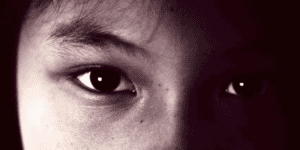ARTICLE
Community Safety and Health Amendment Act of 2019
As members of the Commission on Human Trafficking of the Christian Medical Association, we are writing to protest the attempt to decriminalize commercial sex with the "Community Safety and Health Amendment Act of 2019". This attempt to decriminalize the degradation of mostly women and girls in commercial sex as well as the sex buyer is
by Jeffrey J. Barrows, DO, MA Chair, Commission on Human Trafficking; Gloria Halverson, MD President, Christian Medical & Dental Associations; Patricia Burgess, MD Director, Global Health Outreach
November 5, 2019
RE: Community Safety and Health Amendment Act of 2019 Councilmember Robert C. White, Jr.
Councilmember Anita Bonds
Councilmember David Grosso
Councilmember Brianne K. Nadeau
As members of the Commission on Human Trafficking of the Christian Medical Association, we are writing to protest the attempt to decriminalize commercial sex with the "Community Safety and Health Amendment Act of 2019". This attempt to decriminalize the degradation of mostly women and girls in commercial sex as well as the sex buyer is morally and ethically wrong. This bill will undo the enormous efforts to raise awareness across the United States of the many harms that occur within prostitution and other forms of commercial sex.
We understand that the stated purpose of your bill is to improve community safety and health, but the result will be increased harm and health complications for those engaged in commercial sex. Supporting this conclusion is the well-documented consequence of decriminalizing commercial sex in various regions across the world.
A study published in 2013 analyzing cross-sectional data of 116 countries to determine the effect of legalized prostitution on human trafficking found that legalizing prostitution resulted in significant growth in human trafficking. This increase was stronger in higher income countries than in middle income countries. The type of legalization did not matter. It only mattered whether prostitution was legal or illegal. (Cho S, 2013)
Another study examining the rate of PTSD among women in prostitution in Australia where commercial sex is legal found that 85% of the women reported violence associated with their work in prostitution. Only 35% of these incidents were reported to the police. Another 87% reported mild or moderate depression, while 54% of those working in legal commercial sex reported experiencing current severe depression symptoms. (Roxburgh A, 2006)
Finally, the violence and harms of legal prostitution in Nevada are well documented. (Forrey, 2014) Thus, not only does decriminalization of commercial sex result in increased harm to those participating, but it also promotes the sex trafficking of youth and adults from other countries.
Anyone who scrutinizes commercial sex discovers that these women and children are not prostitutes by "choice." Have you ever heard of a young girl or boy saying, "When I grow up, I want to be a prostitute?" Prostituted women and children commonly experience childhood trauma and are frequently forced to run from their homes only to be coerced by traffickers on the streets. They show severe and devastating signs of physical and psychological abuse that arise from multiple daily rapes. They also suffer malnourishment, physical abuse, genital and rectal trauma, sexually transmitted infections, and suicide rates that far exceed the general population.
As physicians, we struggle to understand the serious consideration currently being given to legalizing prostitution when the data clearly shows the increased harms that result. Prostituted men, women, and children are among the most vulnerable of our society, and they need our protection, not free reign for their controllers or "owners" to torture and abuse them. Instead of decriminalizing this harmful activity, we would recommend continuing to raise awareness of risk factors and red flags to identify these victims of sex trafficking. Once identified, we would recommend a multidisciplinary approach to the healing and restoration of these men, women, and children.
We urge you not to pass this bill and take away any chance they might have to be released from this form of modern-day slavery and allowed to live within our society with the dignity they deserve.
Cho S, d. A. (2013). Does Legalized Prostitution Increase Human grafficking? World Development, 41, 67-82. Roxburgh A, D. L. (2006). Posttraumatic Stress Disorder Among Female Street Based Sex Workers in the Greater Sydney Area, Australia. BMC Psychiatry, 6, 24-36.
Forrey, C. (2014). America's Disneyland of Sex- Exploring the Problem of Sex Trafficking in Las Vegas and Nevada's Response. Nevada Law Journal, 14:3.
Related Topical Articles:
Other Related Topical Content:
Sorry, we couldn't find any posts. Please try a different search.

